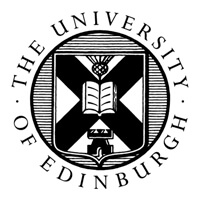fees waived
Electronics and Electrical Engineering, MEng (Hons)
The University of Edinburgh, United Kingdom
Ranking in UK
Engineering: Electronic and Electrical
Engineering - Electrical and Electronic
Engineering
Costs
food & rent S$16.9k / year
Entry requirements
Scholarships
Limited quantity
Information
Code
Intakes
Website (External)
Programmes
Information
Duration
2031
Electronic and electrical systems are fundamental to modern technologies, from smartphone processors to wind turbine power electronics. Electronics focuses on circuits and devices handling small currents and voltages for sensing, transducing, and processing data signals in digital or analogue forms, while electrical engineering deals with larger currents and voltages for power generation and transmission. An Electronics and Electrical Engineering (EEE) degree covers both areas, allowing specialisation in later years through themes such as electrical power, digital and analogue electronics, microelectronics, electromagnetics, photonics, bioelectronics, and sensor networks.This programme emphasises a strong foundation in physics, balancing practical experimentation with theoretical studies, computation, and simulation to develop independent and collaborative problem-solving skills. The MEng degree offers advanced study and industrial placements, supported by ties to industry via an Industrial Liaison Board and opportunities for final-year placements. At Edinburgh, students benefit from research-led teaching, state-of-the-art facilities, accredited programmes, and a supportive community, including clubs for extra-curricular projects, fostering excellent career prospects in engineering.
A local representative of The University of Edinburgh in Singapore is available online to assist you with enquiries about this course.

